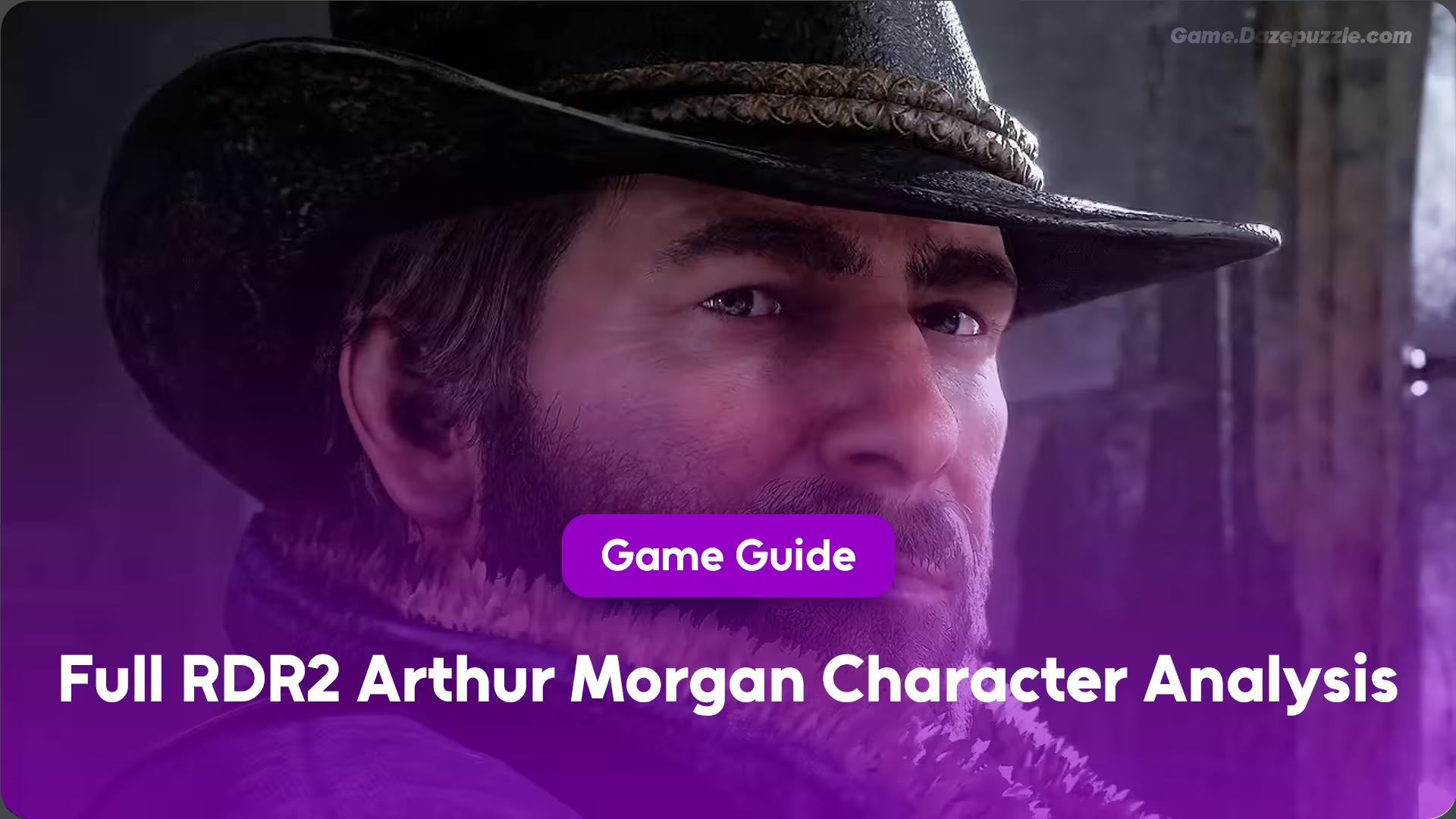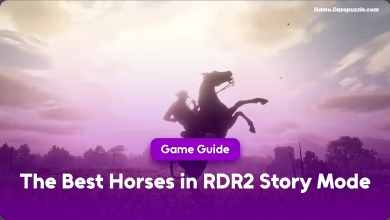What makes a video game character truly unforgettable? It’s not about how fast they can run or how accurately they can shoot. It’s about the quiet moments in between the chaos. It’s the flicker of doubt in their eyes, the weariness in their voice, the hidden kindness that peeks through a hardened exterior. It’s when a character stops feeling like a collection of pixels you control and starts feeling like a living, breathing person. By this measure, few characters in the history of any medium feel as profoundly alive as Arthur Morgan.
When we first meet Arthur, he is the quintessential outlaw: tough, capable, and fiercely loyal to his gang and its charismatic leader, Dutch van der Linde. He seems to be a simple man, a blunt instrument in a world of violence. Yet, over the course of dozens of hours, Rockstar Games peels back the layers of this man, revealing a soul of immense complexity, sadness, and ultimately, beauty.
This is not just a story about a gunslinger; it’s the story of a man reckoning with a lifetime of choices as his world, and his own body, begins to fail him. This in depth Arthur Morgan character analysis will explore the brilliant, tragic, and deeply human journey of a man who discovers that it’s never too late to be good.
What Is in Our Full RDR2 Arthur Morgan Character Analysis
The Enforcer’s Mask: The Man We First Meet
At the start of Red Dead Redemption 2, Arthur Morgan is the perfect enforcer. He’s cynical, pragmatic, and brutally efficient. He collects debts, intimidates rivals, and follows Dutch’s orders without question. His worldview has been entirely shaped by the Van der Linde gang, the only family he has ever known.
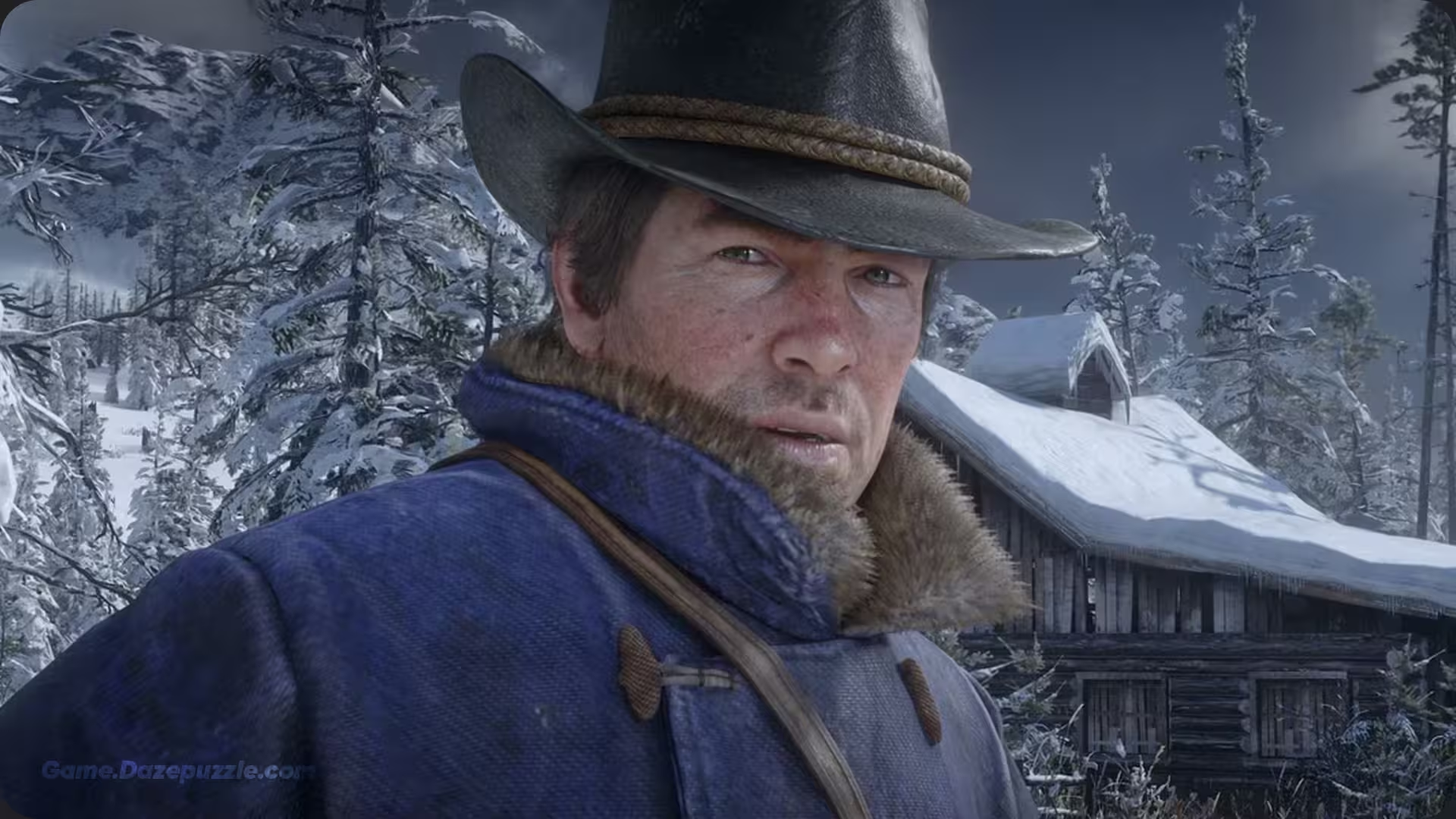
A Life Forged by Loyalty
Arthur’s unwavering loyalty to Dutch is the bedrock of his identity. Rescued from a life on the streets as a lost and angry teenager, Arthur was raised by Dutch and his partner, Hosea Matthews. They taught him how to read, write, shoot, and survive.
More than that, they gave him a code to live by and a place to belong. For Arthur, Dutch is not just a leader; he is the father figure who gave his life meaning. This deep seated loyalty explains why he is so resistant to questioning Dutch’s increasingly erratic plans. To doubt Dutch is to doubt the very foundation of his own existence.
The Ghosts of the Past
Beneath Arthur’s tough exterior lies a well of profound sadness, born from unspoken tragedies that haunt him. Long before the events of the game, Arthur had a son named Isaac with a young waitress named Eliza. He didn’t live with them, but he supported them and visited whenever he could.
These moments were his secret connection to a normal life, a life away from the violence of the gang. This fragile happiness was shattered when he returned one day to find two crosses outside their home; they had been murdered by robbers for ten dollars.
This loss broke something deep inside Arthur. He rarely speaks of it, but it informs his entire character. It’s the source of his cynicism, his belief that nothing good can last, and his initial resentment towards John Marston, a man who has a family but seems to take it for granted. His other great loss was his relationship with Mary Linton, a woman he loved deeply but could not be with because he couldn’t leave the outlaw life behind. Mary represents the path not taken a life of peace and love that Arthur believes he is unworthy of.
The Pistol and the Pen: Arthur’s Journal
The most intimate window into Arthur’s true self is his journal. While his actions in the world are often violent and cold, his journal reveals a man of surprising sensitivity, intelligence, and artistic talent. He doesn’t just log events; he reflects on them with poetic and often self deprecating prose. He sketches the world around him animals, plants, people with a delicate and observant hand.
This journal is the evidence of the man hiding behind the mask. It shows us that Arthur is not just a thug; he is a thinker, a dreamer, and an artist. He is deeply aware of the beauty of the natural world, even as he contributes to the chaos within it. This internal conflict the sensitive soul trapped in the body of a killer is the central tension of his character long before he consciously acknowledges it.
The Catalyst: Sickness and the Cracking Façade
For the first half of the game, Arthur’s internal conflict remains mostly dormant. He does his job, follows Dutch, and keeps his doubts confined to the pages of his journal. But a single, fateful moment acts as the catalyst that forces his inner turmoil to the surface, beginning his painful but beautiful transformation.
A Fateful Diagnosis
The turning point in Arthur’s life is not a gunfight or a heist, but a doctor’s diagnosis. He contracts tuberculosis while brutally collecting a small debt from a sick farmer, Thomas Downes. The irony is devastating: the man who has survived countless shootouts is handed a death sentence by an act of petty cruelty he himself despised.
This diagnosis is a profound memento more a reminder of death. Suddenly, mortality is no longer an abstract risk of his profession; it is a certainty ticking away inside his own lungs. This forces Arthur to look at his life with a clarity he never had before. With a finite amount of time left, the question of what his life has meant, and what his legacy will be, becomes terrifyingly urgent.
“I’m Afraid”: Confronting Mortality
The culmination of this newfound awareness occurs in one of the most powerful scenes in gaming history: Arthur’s confession to Sister Calderón at a train station. If the player has maintained high honor, Arthur, wracked by coughing and vulnerability, finally lets his guard down. He tells her about his sickness, his past, and his regrets. And then, in a moment of heartbreaking honesty, he admits, “I’m afraid.”
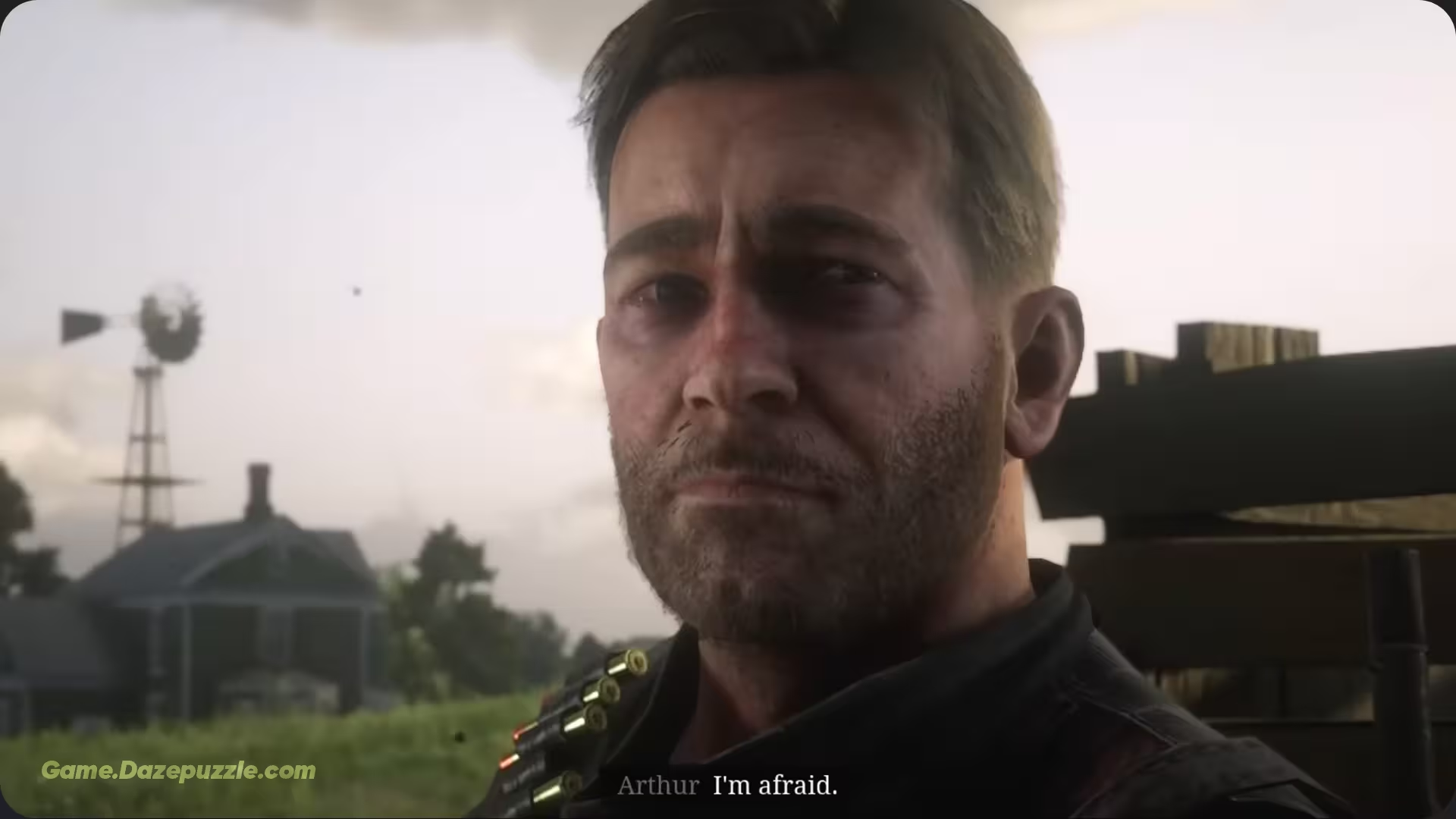
This is the moment the enforcer’s mask shatters completely. It is the raw, unfiltered confession of a man staring into the abyss and terrified of what he sees. It’s not just a fear of dying, but a fear of dying for nothing, of leaving behind a legacy of only pain and violence. Sister Calderón’s advice is simple but profound: “Take a gamble that love exists, and do a loving act.” This gives Arthur a new mission not one of money or survival, but of grace.
The Fall of a Father
As Arthur’s body weakens, his faith in Dutch collapses entirely. He watches the man he idolized descend into paranoia, narcissism, and senseless violence. The death of Hosea during the Saint Denis bank robbery removes the only voice of reason that could temper Dutch’s worst impulses.
With Hosea gone, Dutch becomes more reckless, more manipulative, and more willing to sacrifice anyone for his own ego. For Arthur, seeing his father figure decay into a monster is the final push he needs to break free from a lifetime of blind loyalty. He realizes he can no longer follow Dutch’s path; he must find his own.
The Path of Redemption: The Actions of a Good Man
Arthur’s redemption is not found in a single grand gesture, but in a series of small, conscious choices to use his remaining time to mend what he has broken and to help those he can. This is where the player’s actions become deeply intertwined with Arthur’s narrative arc.
Atoning for Sin
Many of the most powerful moments of Arthur’s redemption are found in optional side missions. He seeks out the widow and son of Thomas Downes, the man from whom he contracted tuberculosis. Wracked with guilt, he saves them from a life of destitution, giving them money and a chance to start anew. He is, in a very literal sense, trying to bring life to the family whose patriarch he helped destroy.
In another series of encounters, he helps Charlotte Balfour, a widow struggling to survive alone in the wilderness. He teaches her to hunt and shoot, empowering her to live independently. These are acts of pure altruism. Arthur gains nothing from them but the knowledge that he is leaving the world a slightly better place than he found it.
My Brother’s Keeper: The Salvation of John Marston
The ultimate expression of Arthur’s redemption is his final act of sacrifice for John Marston. His relationship with John is complicated at first, filled with resentment. But as Arthur faces his own mortality, he begins to see John differently. He sees a man with a wife and a young son a chance at the family life that was stolen from Arthur.
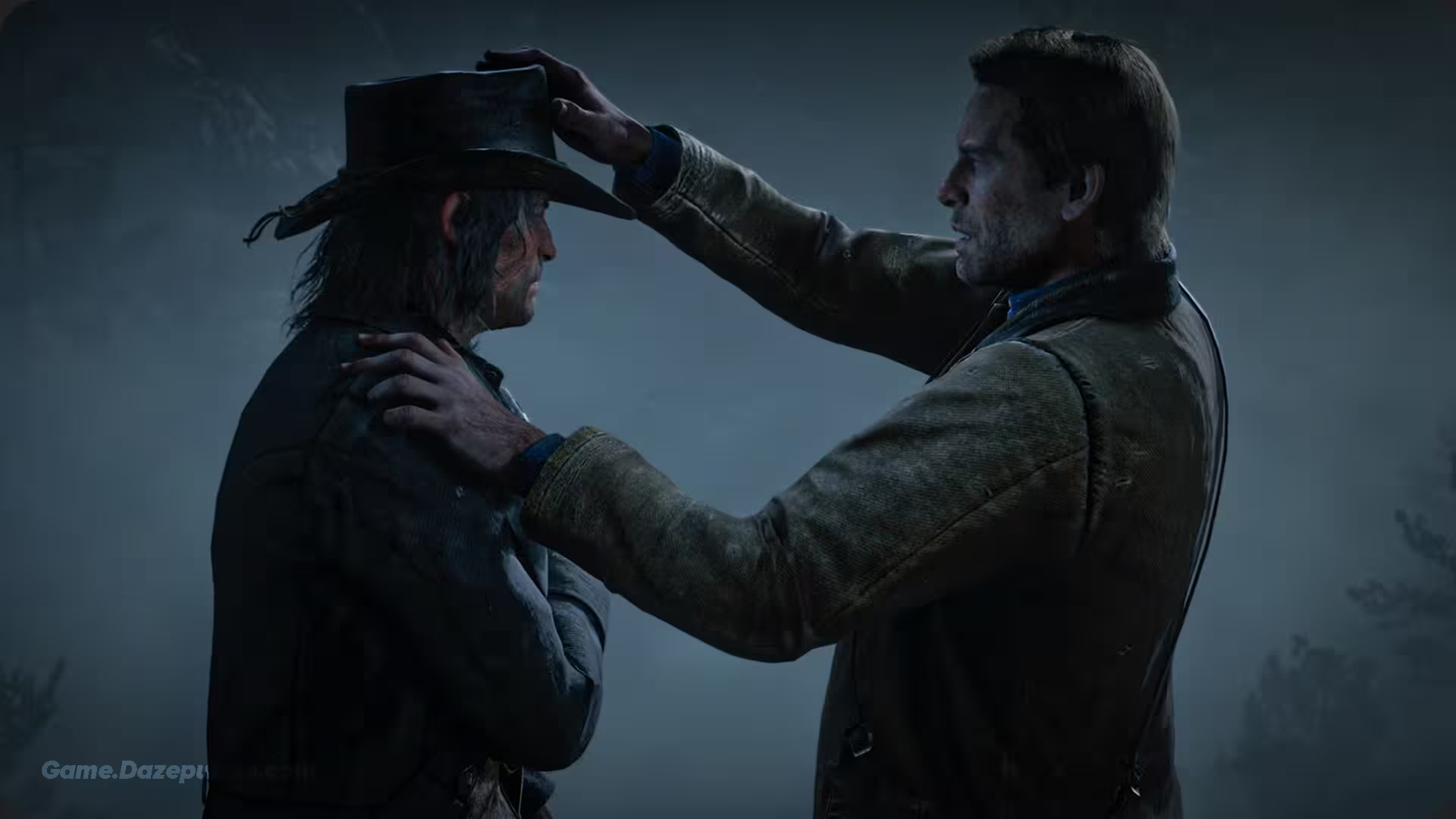
In his final hours, Arthur’s entire focus shifts to ensuring John, Abigail, and Jack can escape. He gives John his journal and his hat, passing the torch. His last words to John are not about money or revenge, but a desperate plea: “Go. And don’t look back.” He fights and dies so that John can live. Arthur realizes he cannot save himself, but he can save his brother. In this selfless act, he finds the ultimate meaning and peace he had been searching for.
The Legacy of an Outlaw: Honor, Choice, and Symbolism
Rockstar brilliantly weaves Arthur’s moral journey into the very mechanics of the game, allowing the player to become a participant in his redemption.
The Player’s Choice, Arthur’s Story
The Honor System is more than just a good/bad meter; it’s a narrative device. Your choices directly influence Arthur’s inner world. A high honor Arthur is more reflective, his journal entries more hopeful. A low honor Arthur is more bitter and violent.
The system makes you, the player, an active participant in his struggle. Are you guiding him towards the light, or letting him succumb to the darkness? The final scenes of his life, his last words, and even his grave are all determined by the sum of the choices you made along the way.
The Deer and the Wolf: The Symbolism of a Soul
Throughout his journey, Arthur has recurring dreams or visions of an animal. If his honor is high, he sees a majestic buck, a symbol of grace, nobility, and peace. If his honor is low, he is stalked by a black coyote or wolf, a symbol of a predatory and scavenger like nature. This powerful imagery serves as a constant visual representation of the state of his soul the two paths that lie before him.
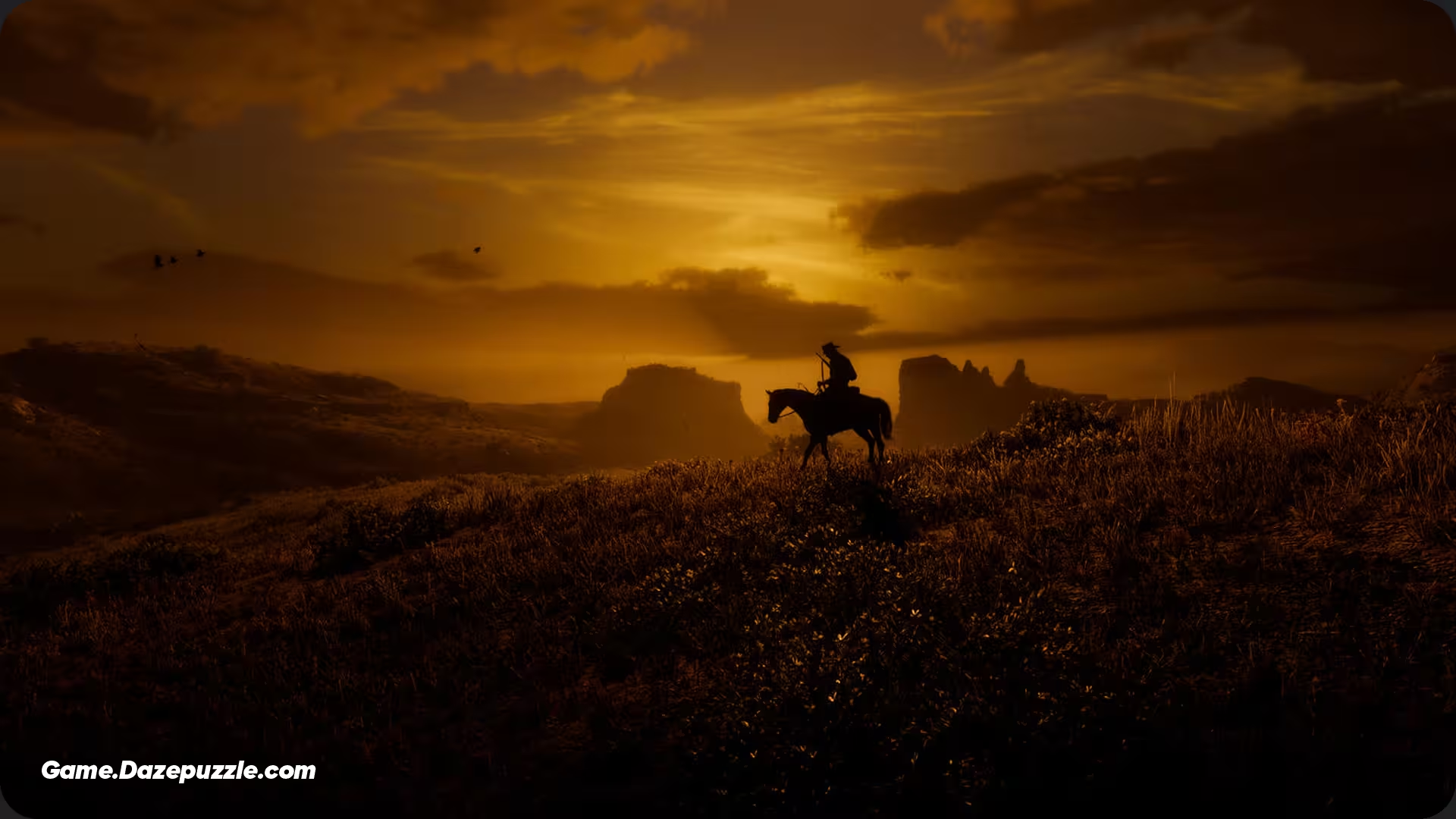
A Death Facing the Dawn
The high honor ending is the canonical conclusion to Arthur’s arc. After ensuring John’s escape, a dying Arthur crawls to a mountaintop. He doesn’t die in a blaze of glory, but in a moment of quiet peace. He watches his last sunrise, and as the light washes over him, he breathes his last. It is a profoundly beautiful and symbolic end. He dies facing the dawn, a new day that he will not see, but one that he secured for others. He has found his redemption.
Conclusion: An Unshakable Legacy
Arthur Morgan begins his story as a man who believes he is trapped by his past, defined by his crimes, and loyal to a fault. He ends it as a man who understands that our past does not have to be our prison and that true loyalty is to the people we love, not to a failing ideology.
The brilliance of Arthur Morgan is his humanity. He is not a flawless hero or a one dimensional villain. He is a walking contradiction: a killer with the soul of a poet, a cynic who learns to hope, a bad man who chooses, with every fiber of his being, to die as a good one.
His journey is a heartbreaking and uplifting testament to the idea that even in the darkest of worlds, and at the very end of life, there is still time to make a choice. There is still time for one last, redemptive act. It is this profound truth that makes Arthur Morgan not just a great video game character, but one of the most enduring and beloved figures in modern storytelling.
Red Dead Redemption 2 Steam Page
Thanks for keeping up with Game.Dazepuzzle.com

